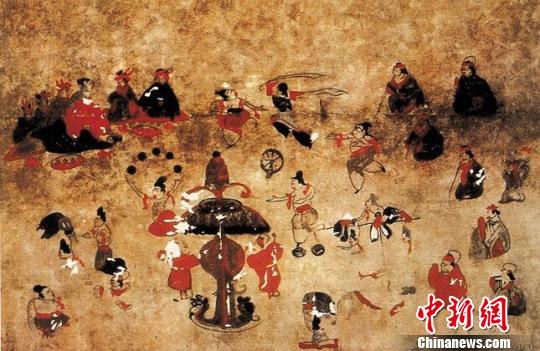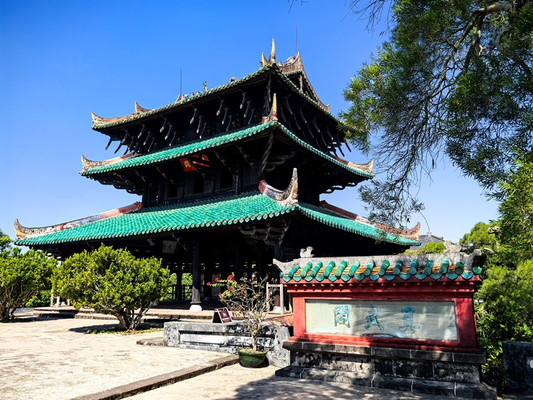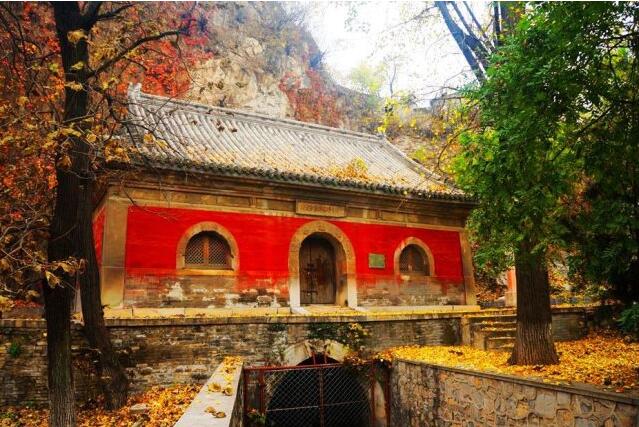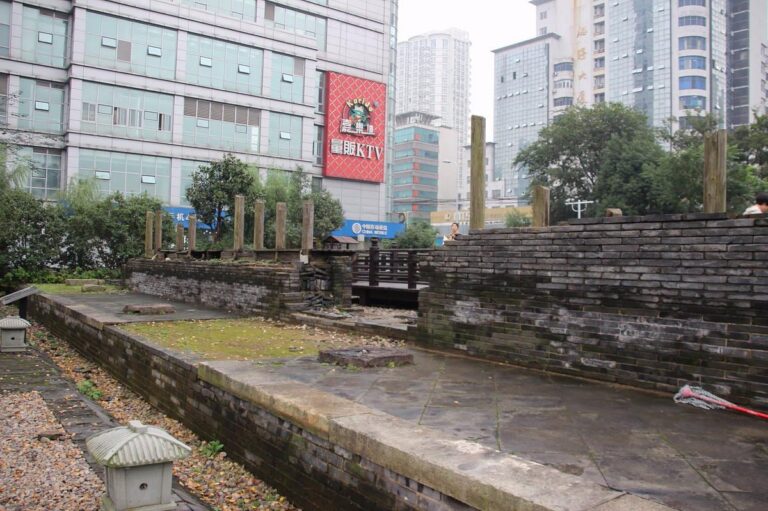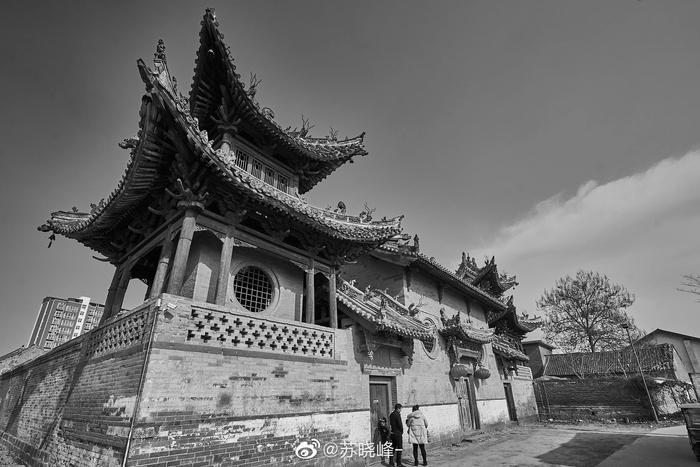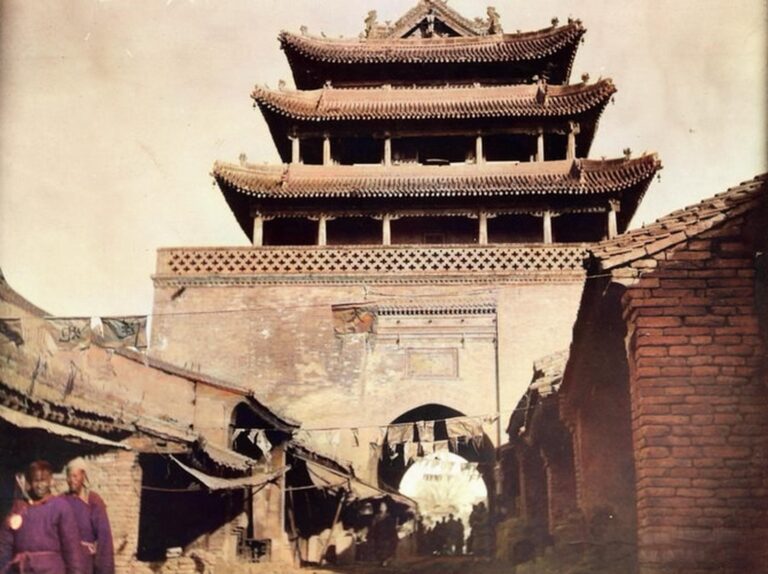Journey to Peace: Exploring the Cultural Richness of Yichun Mazu Tating
An Essential Guide to Visiting Yichun Mazu Tating
In This Guide
- An Essential Guide to Visiting Yichun Mazu Tating
- The Rich History of Yichun Mazu Tating
- Main Highlights: What to See at Yichun Mazu Tating
- Planning Your Visit: A Practical Guide
- Tickets, Hours, and Booking
- How to Get There
- Local Cuisine and Accommodation
- Frequently Asked Questions
- Final Thoughts on Your Trip
Nestled in the picturesque Jiangxi Province of China, Yichun Mazu Tating, or Mazu Pagoda Pavilion, stands as a revered symbol of Zen Buddhism and a significant cultural landmark. This stunning structure is not merely a religious site; it embodies centuries of history, tradition, and architectural brilliance. Built in homage to the influential Zen master Mazu Daoyi, the pavilion is strategically located behind the Baofeng Temple in the tranquil town of Jing’an, surrounded by the breathtaking natural beauty of the region.
The origins of the Mazu Tating date back to the Tang Dynasty, specifically the year 788 AD, when Mazu Daoyi, at the age of 80, expressed a profound wish to be laid to rest in this serene landscape. Following his passing, his disciples honored his legacy by constructing this pagoda to house his revered relics. Over the years, the pavilion has undergone various renovations and restorations, showcasing different eras of architectural styles and materials, including the exquisite white marble sourced from Shandong in the recent rebuild of 1993.
Visitors to Yichun Mazu Tating are not only treated to the serenity of the site but also to an immersive experience in the rich tapestry of Chinese Buddhist culture. The pavilion, with its elegant six-sided roof adorned with dragon sculptures, invites guests to reflect on the teachings of Mazu Daoyi while offering a peaceful retreat from the hustle and bustle of modern life. Surrounding gardens filled with fragrant osmanthus trees enhance the atmosphere, particularly during the autumn when their blossoms fill the air with a sweet scent.
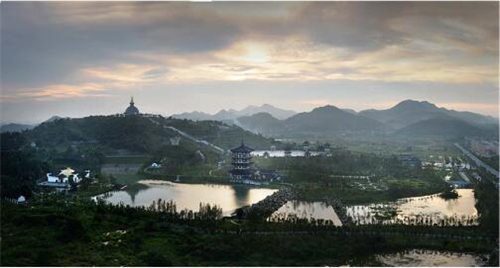
Yichun Mazu Tating.
As one of Jiangxi’s key cultural heritage sites, Yichun Mazu Tating is more than just a destination for spiritual seekers; it is an essential stop for history enthusiasts, architecture lovers, and anyone looking to connect with the profound philosophies that have shaped Chinese culture over the centuries. Whether you are seeking enlightenment, tranquility, or simply to marvel at its architectural beauty, the Mazu Tating promises a memorable experience that resonates long after your visit.
The Rich History of Yichun Mazu Tating
Yichun Mazu Tating, a historical site of profound significance, is nestled in the Baofeng Town of Jing’an County, Jiangxi Province, China. This remarkable structure is dedicated to the revered Tang Dynasty monk, Mazu Daoyi, a seminal figure in Chinese Zen Buddhism.
The origins of Mazu Tating trace back to 788 AD when Mazu, at the age of 80, climbed the Shimen Mountain (present-day Baofeng) with his disciples. Captivated by the beauty of the landscape, he expressed his wish to be buried there upon his death. Just a month later, he passed away, and his followers honored his wish by interring his remains at the site.
In 791 AD, an imperial decree from Emperor Dezong of the Tang Dynasty authorized the construction of a stupa to preserve Mazu’s relics. This initiative was overseen by Quan De Yu, a notable figure of the time, who also penned the stupa’s inscription. Over the years, the site evolved, with significant renovations occurring during the Song Dynasty, including the addition of a stone pavilion in 1085, which stands at 5.5 meters tall and features intricate stone carvings.
The pavilion has endured through centuries, albeit not without challenges. During the Cultural Revolution, the original structure faced destruction, but in 1993, it was lovingly reconstructed by Master Yi Cheng, preserving the architectural style and using high-quality materials sourced from Shandong. The new structure stands at 3.78 meters and continues to serve as a testament to Mazu’s influential teachings and the enduring legacy of Zen Buddhism in China.
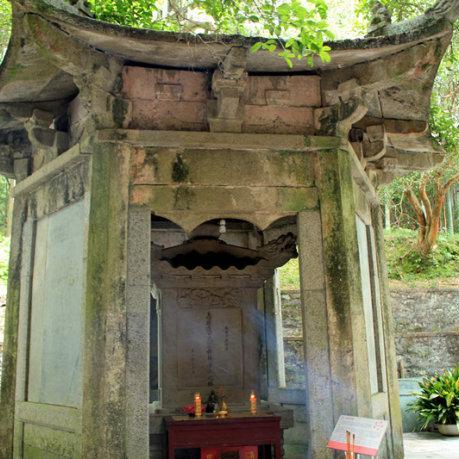
Yichun Mazu Tating.
Mazu Tating is not only revered for its historical significance but also represents a vital part of Jiangxi’s cultural heritage. It has been designated a key cultural relic protection unit by the Jiangxi Provincial Government and is recognized as an important site for the study of Buddhist philosophy and its impact on Chinese culture. With its serene environment and rich history, Mazu Tating attracts visitors from all walks of life, offering them a glimpse into the spiritual and cultural wealth that has flourished in this region for over a millennium.
Main Highlights: What to See at Yichun Mazu Tating
Nestled in the picturesque Jiangxi province, Yichun Mazu Tating (马祖塔亭) is a treasure trove of both historical and spiritual significance. This revered site is not only an architectural marvel but also a prominent pilgrimage destination for followers of Buddhism, particularly Zen.
The Tating is dedicated to the renowned Buddhist master Mazu Daoyi, who founded the Southern School of Zen during the Tang Dynasty. Erected in 791 AD, the structure serves as a memorial to Mazu, whose teachings have profoundly influenced Zen Buddhism. The site is steeped in legend, with tales of Mazu’s final wishes to be interred in the tranquil surroundings of Baofeng Mountain, where the Tating stands today.
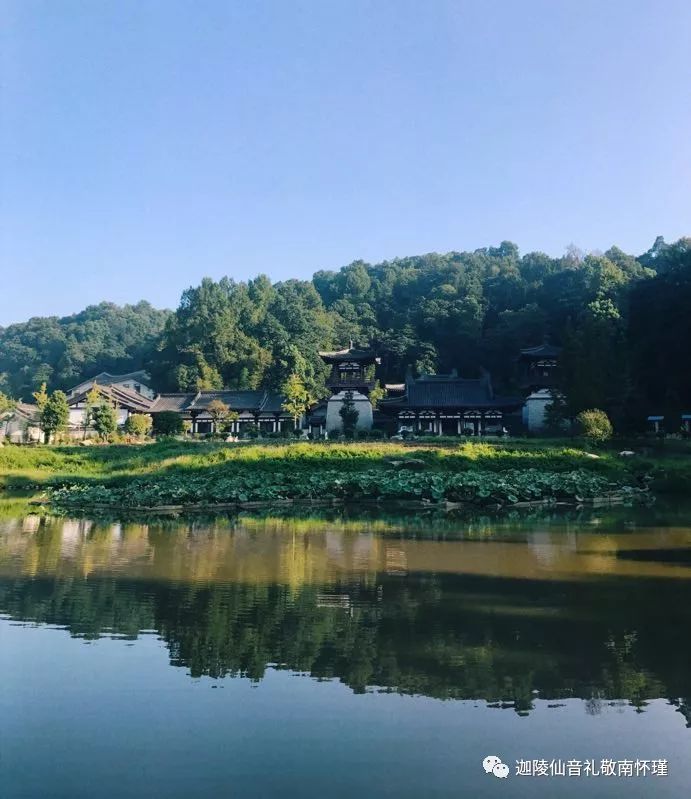
Yichun Mazu Tating.
One of the most striking features of Mazu Tating is its exquisite architectural design. The pavilion, standing at 5.5 meters tall, showcases a six-sided roof supported by six intricately carved granite pillars. The craftsmanship reflects the elegance of the Song Dynasty stone architecture, with dragon motifs adorning the eaves, symbolizing power and protection.
As visitors approach, they are greeted by the enchanting aroma of osmanthus trees that flank the pavilion, particularly fragrant during the autumn months. Inside the pavilion, you will find carefully inscribed stone tablets and the resting place of Mazu’s relics, which are housed beneath the structure, allowing devotees to pay their respects.
The serene atmosphere of the Tating is further enhanced by the surrounding natural beauty, making it a perfect spot for meditation and reflection. The lush greenery, combined with the historical gravitas of the site, creates an inviting space for both spiritual seekers and casual visitors alike.
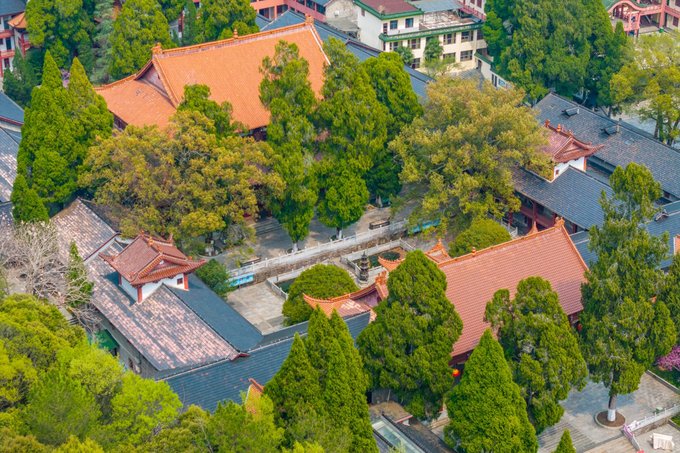
Yichun Mazu Tating.
While exploring the area, take the opportunity to visit nearby attractions like Baofeng Zen Temple and the scenic hills of Jingan County. Each offers its own unique blend of nature and culture, further enriching your experience in this remarkable region of China.
Yichun Mazu Tating is not just a destination; it is a journey into the heart of Chinese spirituality and heritage, making it a must-visit for anyone traveling through Jiangxi province.
Planning Your Visit: A Practical Guide
Nestled in the tranquil beauty of Jiangxi Province, Yichun’s Mazu Tating (Mazu Tower Pavilion) is a significant historical and cultural landmark that attracts visitors seeking a glimpse into Buddhist heritage and ancient architecture. Here’s everything you need to know for a smooth visit to this enchanting site.
Getting There
Yichun is well-connected by road and rail, making it accessible from major cities in Jiangxi and beyond. The nearest railway station is Yichun Railway Station, which has regular trains from cities like Nanchang and Hangzhou. If you opt for flying, Yichun Mingyueshan Airport serves domestic flights, with taxis available for hire to reach the pavilion.
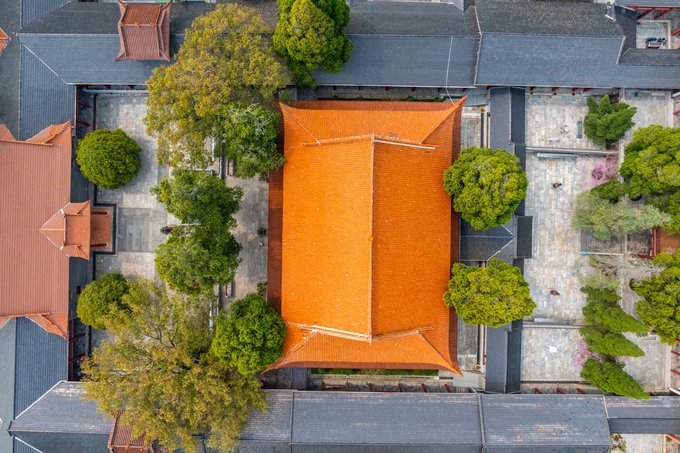
Yichun Mazu Tating.
Once in Yichun, local buses and taxis can take you to Jing’an County, where Mazu Tating is located. The pavilion is situated behind the Baofeng Temple, making it a convenient stop if you plan to explore the temple as well.
Opening Hours
Mazu Tating is typically open to visitors from 08:00 AM to 06:00 PM daily. However, it’s advisable to check local resources or contact the site directly for any changes in hours or special events that may affect access.
Admission Fees
The entrance to Mazu Tating is generally free, but there may be charges for guided tours or special exhibitions. It’s a good idea to bring some cash, as smaller vendors and some local attractions may not accept cards.
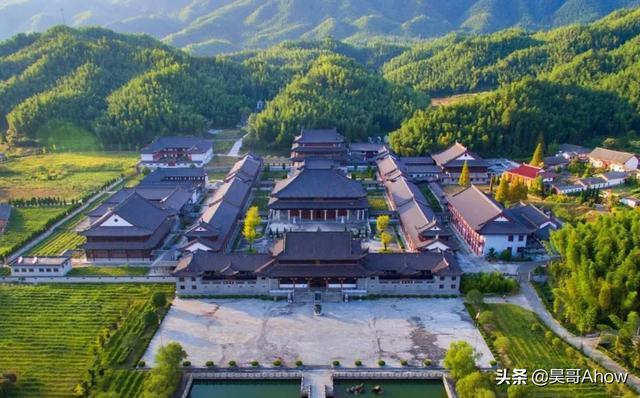
Yichun Mazu Tating.
What to See
Mazu Tating is not just an architectural marvel; it is steeped in the rich history of Chinese Buddhism. The pavilion stands as a memorial to the revered Zen master Mazu Daoyi, who was instrumental in the spread of Zen Buddhism in China. Key features to explore include:
- The Pavilion Structure: The pavilion itself is a stunning example of Song Dynasty stone architecture, characterized by its hexagonal roof and intricate stone carvings.
- Buddha Relics: Beneath the pavilion lies a tomb housing the relics of Mazu, making it a pilgrimage site for many devotees.
- Natural Surroundings: The pavilion is surrounded by lush gardens and ancient trees, providing a serene environment perfect for reflection and photography.
Tips for Visitors
- Dress Comfortably: Wear comfortable shoes as you may find yourself walking on uneven surfaces around the pavilion and its gardens.
- Stay Hydrated: Bring water, especially during warmer months, as exploring the area can be tiring.
- Respect Local Customs: As Mazu Tating is a religious site, be respectful of the customs and practices observed by visitors and monks alike.
Nearby Attractions
After visiting Mazu Tating, consider exploring other nearby attractions:
– Baofeng Temple: A beautiful temple complex with stunning architecture and a peaceful ambiance, perfect for experiencing local spirituality.
– Three Claw Mountain National Forest Park: Ideal for nature lovers, this park offers hiking trails and breathtaking views of the surrounding landscape.
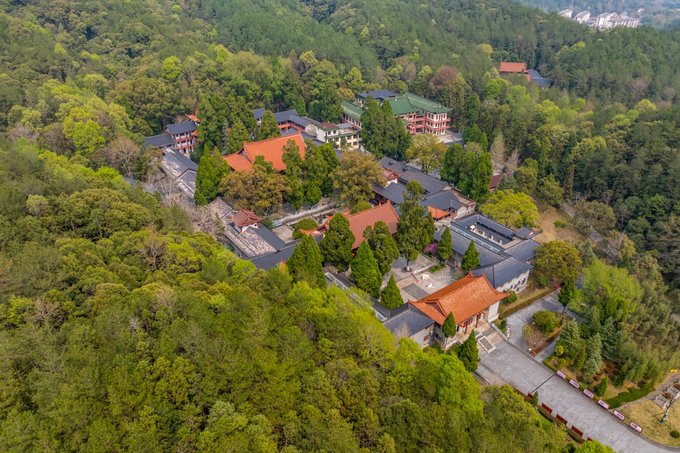
Yichun Mazu Tating.
Accommodation
Yichun offers various accommodation options, ranging from budget hostels to upscale hotels. Staying in Yichun city center provides easy access to local dining and shopping while being a short drive from Mazu Tating. If you prefer a more immersive experience, consider guesthouses or hotels near Baofeng Temple.
Conclusion
Visiting Mazu Tating is a wonderful opportunity to connect with China’s rich cultural and historical tapestry. Whether you’re a history buff, a spiritual seeker, or simply a traveler in search of beauty, this site offers a unique glimpse into the past and a peaceful retreat in nature.
Tickets, Hours, and Booking
Visitors planning a trip to Yichun Mazu Tating (马祖塔亭) will find that access to this historical site is quite straightforward. The tickets for Mazu Tating are affordably priced, making it an accessible destination for travelers of all kinds.
Ticket Information
- Entry Fee: Approximately 20 RMB (around $3 USD).
- Opening Hours: Mazu Tating is open daily from 8:00 AM to 5:30 PM, allowing ample time for visitors to explore the site.
- Location: Mazu Tating is conveniently located in the Baofeng Town of Jiang’an County, Yichun, Jiangxi Province, adjacent to the Baofeng Temple. This makes it easy to combine your visit with other local attractions.
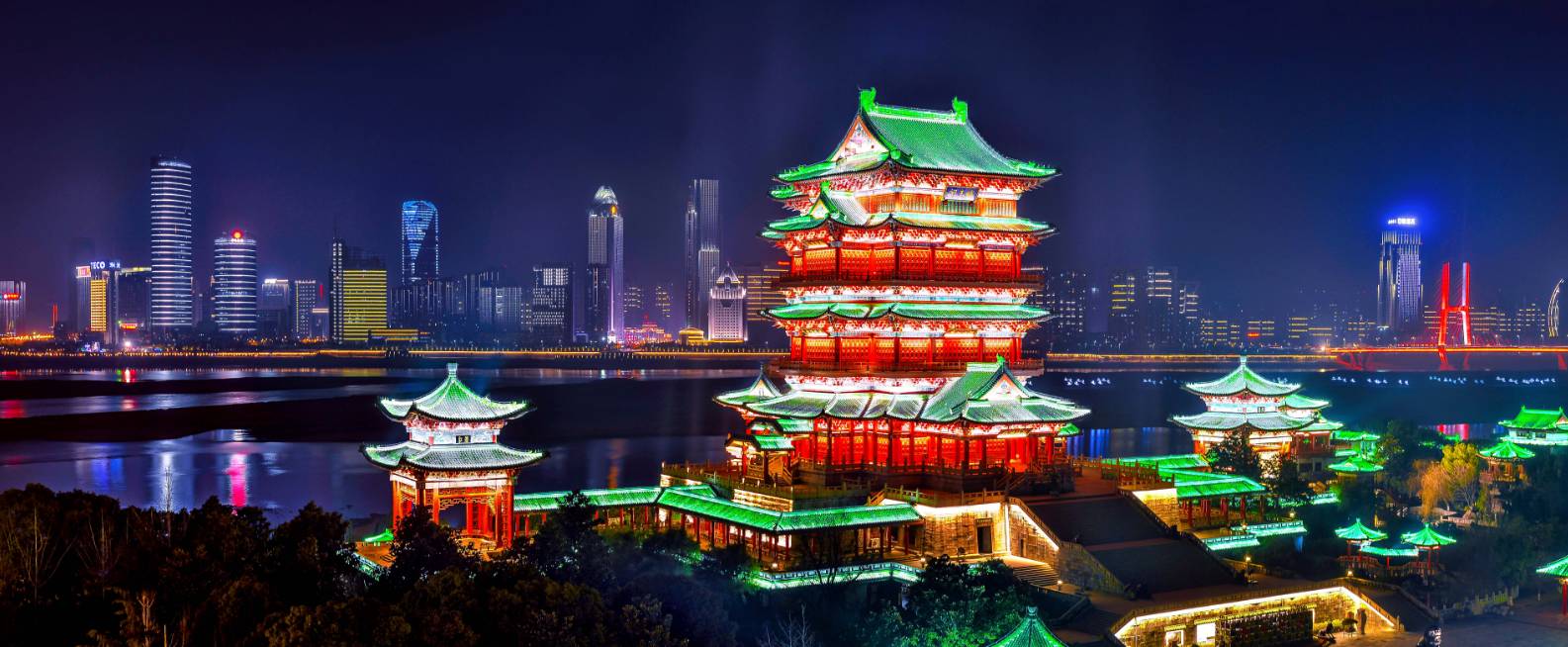
Yichun Mazu Tating.
Additional Notes
- Guided Tours: Consider joining a guided tour to enrich your experience with insights into the rich history of Mazu Tating, which dates back to the Tang Dynasty. Knowledgeable guides can provide context about its significance in Chinese Zen Buddhism.
- Transportation: The site can be accessed via local transportation options, including buses and taxis from Yichun city center. Public transport is generally reliable and affordable.
Make sure to check the local weather and plan your visit accordingly, as the site offers beautiful scenic views that are best enjoyed in pleasant weather.
How to Get There
Getting to Yichun Mazu Tating is a journey that reflects the charm of Jiangxi province, offering visitors a blend of natural beauty and cultural heritage. Here’s how you can navigate your way to this remarkable site:
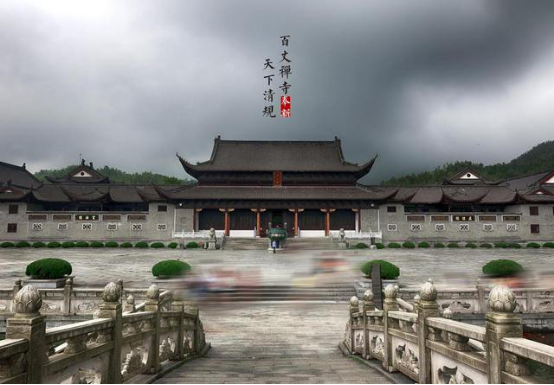
Yichun Mazu Tating.
By Air
The nearest major airport to Yichun is the Yichun Mingyue Mountain Airport (YIC), which is about 23 kilometers from the city center. This airport serves domestic flights, primarily from larger cities such as Beijing, Shanghai, and Guangzhou. From the airport, visitors can hire a taxi or use ride-sharing services to reach Yichun city or directly to Mazu Tating.
By Train
Yichun is well-connected by rail, making it convenient for travelers coming from various parts of China. The Yichun Railway Station serves several high-speed and regular trains. Key routes include:
– From Nanchang: High-speed trains connect Yichun to Nanchang, with travel times around 2 hours.
– From Guangzhou: Direct trains take approximately 8 hours, making it a feasible option for those coming from southern China.
Upon arriving at the Yichun Railway Station, visitors can take a taxi to Mazu Tating, which is roughly a 30-minute drive away.
By Bus
Long-distance buses are another popular mode of transportation to Yichun. The Yichun Long-distance Bus Station has services from various cities, including Nanchang, Jiangxi’s capital. Buses typically run frequently, with travel times varying based on distance, offering an economical way to reach the city.
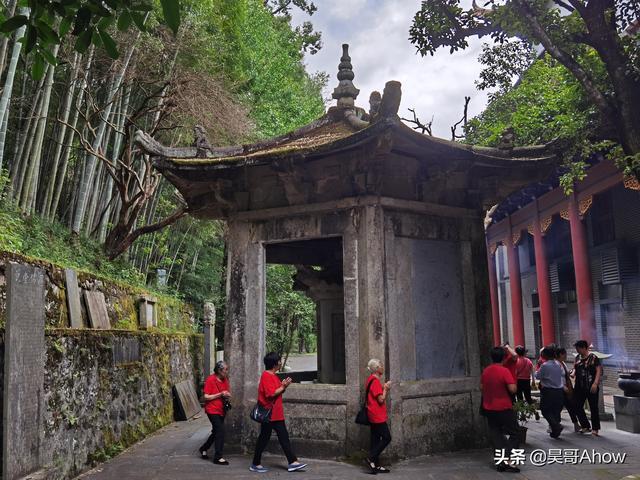
Yichun Mazu Tating.
Local Transportation
Once in Yichun, getting to Mazu Tating can be easily managed through local transportation options:
– Taxis: Readily available throughout the city, taxis are a convenient choice for reaching Mazu Tating directly.
– Ride-Sharing Apps: Services like Didi Chuxing operate in Yichun, providing flexible transportation options at competitive prices.
– Public Buses: For the more budget-conscious traveler, local buses can take you to the vicinity of Mazu Tating, although this may require some walking.
By Car
For those who prefer driving, renting a car is an excellent option. Yichun is accessible via several major highways, including G60 and G105, making the drive picturesque and straightforward. Mazu Tating is well-signposted, and parking is available near the site.
Conclusion
Whether you choose to travel by air, train, bus, or car, reaching Yichun Mazu Tating is relatively straightforward. Each mode of transportation offers its own unique experience, ensuring that visitors have the opportunity to soak in the surrounding landscapes and local culture on their journey. Enjoy your visit to this historical gem in Jiangxi province!
Local Cuisine and Accommodation
When you visit Yichun’s Mazu Tating, you’ll not only be captivated by its historical significance and architectural beauty but also by the delightful culinary and accommodation options that the region has to offer. Here’s a guide to help you navigate the best food and places to stay during your visit.
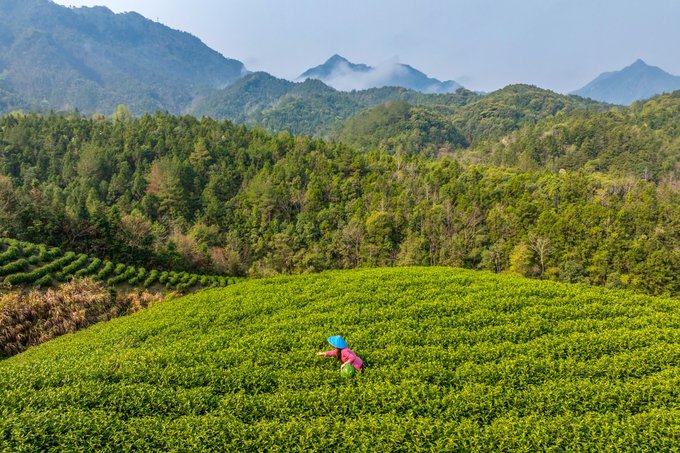
Yichun Mazu Tating.
Culinary Delights
Yichun is known for its rich culinary traditions that reflect the local culture and natural resources. Here are some must-try dishes and where to find them:
-
Black Glutinous Rice Wine: A local specialty, this wine is renowned for its rich flavor and health benefits. You can find authentic versions at local restaurants and specialty shops in Yichun.
-
Jiangxi Noodles: These are hand-pulled noodles served in a variety of broths. Look for stalls near the Mazu Tating for an authentic experience. The noodles often come with a mix of fresh vegetables and marinated meats.
-
Steamed Fish with Pickled Vegetables: The region’s proximity to rivers means you can enjoy fresh fish dishes. Many local eateries serve this dish, which is a perfect blend of flavors.
-
Fried River Shrimp: This dish is a local favorite, typically seasoned with garlic and spices. Try it at one of the nearby taverns for a satisfying meal after a day of exploring.
-
Mao Gan Rice: A traditional dish made with local rice varieties that are steamed and served with various toppings. You can find this comforting dish in many small family-run restaurants.
Accommodation Options
When it comes to places to stay, Yichun offers a range of accommodations that cater to different budgets and preferences:
-
Luxury Hotels: For a more upscale experience, consider the Yichun International Hotel. It provides modern amenities, fine dining, and is conveniently located near major attractions, including Mazu Tating.
-
Boutique Hotels: The Jing’an Fenglin Hotel offers a cozy atmosphere with a blend of modern and traditional Chinese decor. It’s an excellent choice for travelers looking for a unique experience.
-
Guesthouses: For a more intimate and local experience, stay at one of the guesthouses in the nearby towns. Many offer home-cooked meals and are run by friendly locals who can provide insights into the region’s culture.
-
Hostels: If you’re traveling on a budget, there are several hostels available that provide basic amenities and a chance to meet fellow travelers. Yichun Youth Hostel is particularly popular among backpackers.
-
Homestays: For a truly immersive experience, consider a homestay. This option allows you to live with a local family, enjoying home-cooked meals and firsthand knowledge of the area.
Whether you’re savoring local dishes or resting in a comfortable bed after a day of exploration, Yichun and its surroundings offer an array of experiences that will make your visit to Mazu Tating even more memorable. Enjoy the journey!
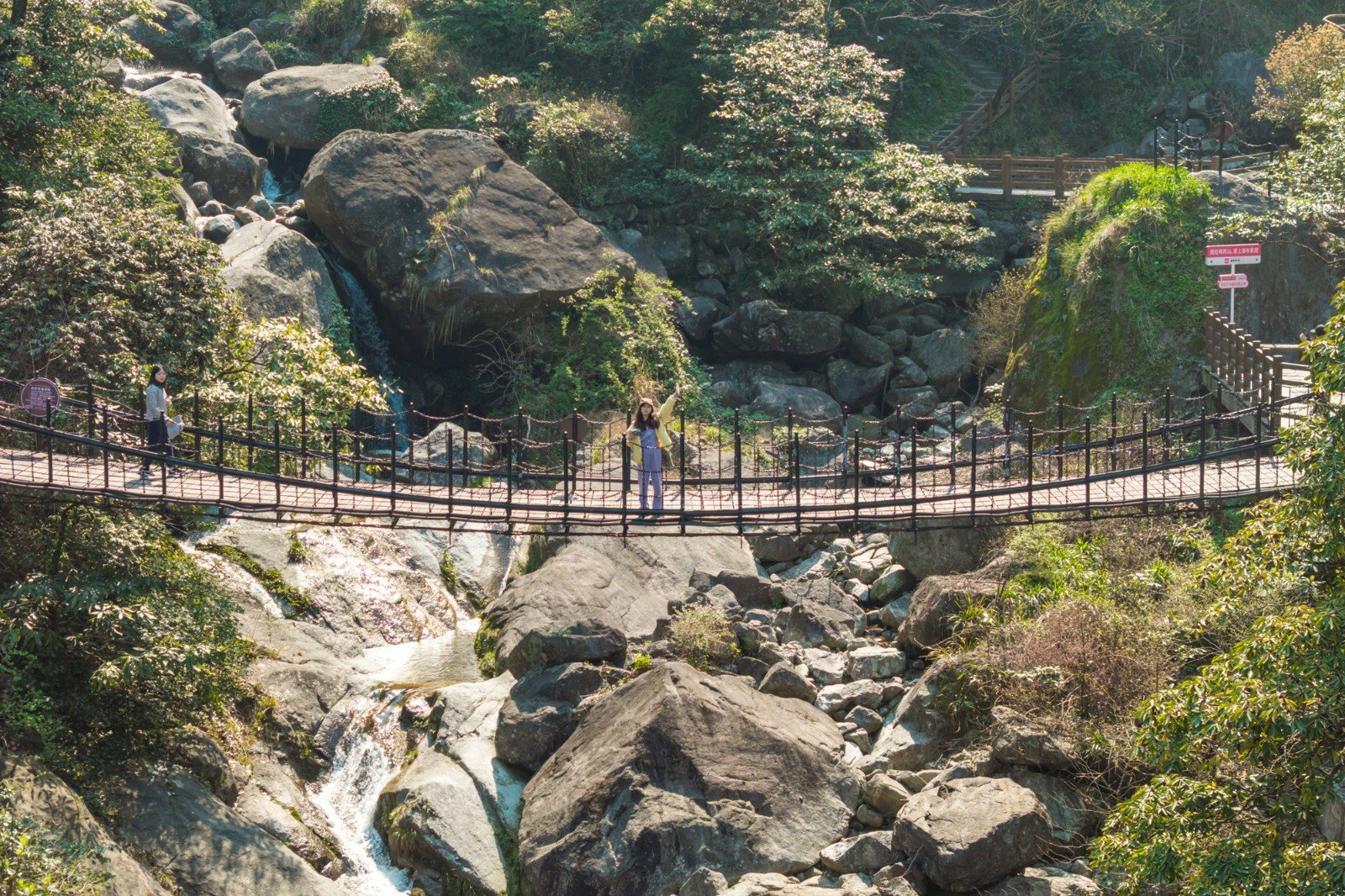
Yichun Mazu Tating.
Frequently Asked Questions
-
What is Yichun Mazu Tating?
Yichun Mazu Tating, also known as Mazu Pagoda Pavilion, is a significant historical and cultural site located in Baofeng Town, Jing’an County, Yichun, Jiangxi Province. Built in honor of Mazu Daoyi, a prominent figure in Chinese Zen Buddhism, the pavilion houses his remains and is a testament to the architectural prowess of the Song Dynasty. -
How do I get to Yichun Mazu Tating?
The pavilion is accessible by car or public transport from the city of Yichun. Visitors can take local buses or taxis to reach Jing’an County, and from there, it’s a short trip to Baofeng Town. Detailed maps and transportation information are available online or at local tourist centers. -
What are the opening hours?
Yichun Mazu Tating is generally open to visitors all year round. However, specific hours may vary depending on the season and local holidays. It’s advisable to check the latest information before planning your visit. -
Is there an entry fee?
There is typically a small entrance fee to visit Yichun Mazu Tating, which helps maintain the site. Discounts may be available for students or seniors, so it’s worth inquiring at the entrance. -
What can I expect to see at the site?
Visitors to Yichun Mazu Tating can explore the beautifully constructed pavilion, which features intricate stone carvings and a serene atmosphere. The site also includes a small museum that showcases artifacts related to Mazu Daoyi and the history of Zen Buddhism in China. -
Are there any nearby attractions?
Yes, several attractions are located nearby, including Baofeng Temple and various natural parks. These sites offer opportunities for hiking, photography, and enjoying the scenic beauty of Jiangxi Province. -
Is Yichun Mazu Tating suitable for families with children?
Absolutely! Yichun Mazu Tating is a family-friendly destination. Children can learn about history and culture while enjoying the peaceful surroundings. However, parents should supervise younger kids, especially near any steep areas. -
What should I wear when visiting?
Comfortable clothing and shoes are recommended, as visitors may want to walk around and explore the site. If you plan to visit during the rainy season, consider wearing waterproof footwear and bringing an umbrella, as the area can become slippery.
Final Thoughts on Your Trip
Visiting Yichun Mazu Tating is not just a journey to a historical site; it is an immersion into the rich tapestry of Chinese Buddhist culture and history. This remarkable stone pavilion, dedicated to the revered Zen master Mazu Daoyi, stands as a testament to centuries of devotion and architectural brilliance. As you explore its intricately crafted structure and the serene surroundings, you will feel a deep connection to the spiritual legacy left by Mazu and his followers.
Beyond the pavilion, the lush landscapes of Yichun invite you to discover their natural beauty, from tranquil temples to vibrant flora. Each visit offers a unique opportunity to reflect and rejuvenate, making it an ideal retreat for those seeking peace or inspiration. While you stand beneath the majestic pavilion, take a moment to appreciate not just the artistry of your surroundings, but also the enduring spirit of the Zen philosophy that continues to resonate through the ages.
Whether you are a history enthusiast, a spiritual seeker, or simply a lover of beautiful places, Yichun Mazu Tating promises an enriching experience. So pack your bags and set forth on an unforgettable adventure to this sacred site, where every stone tells a story, and every corner invites contemplation.
